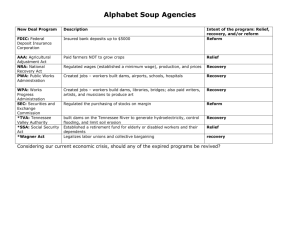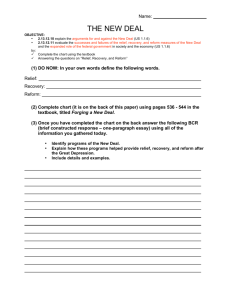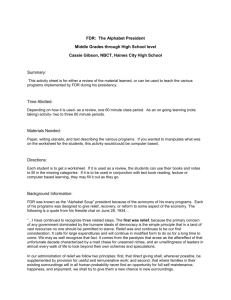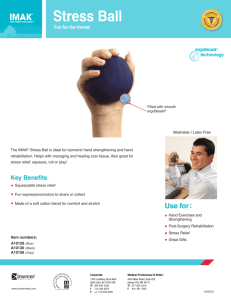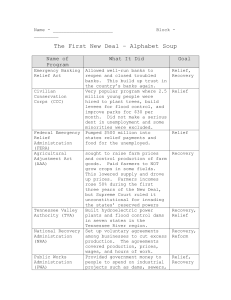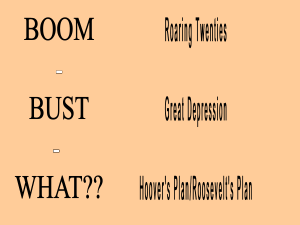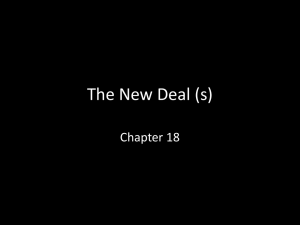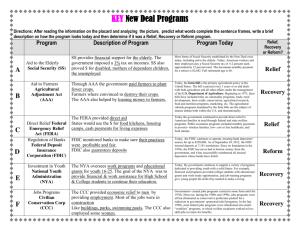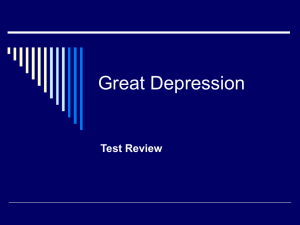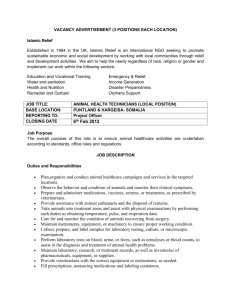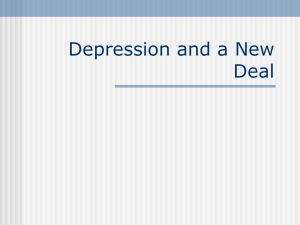The new deal
advertisement
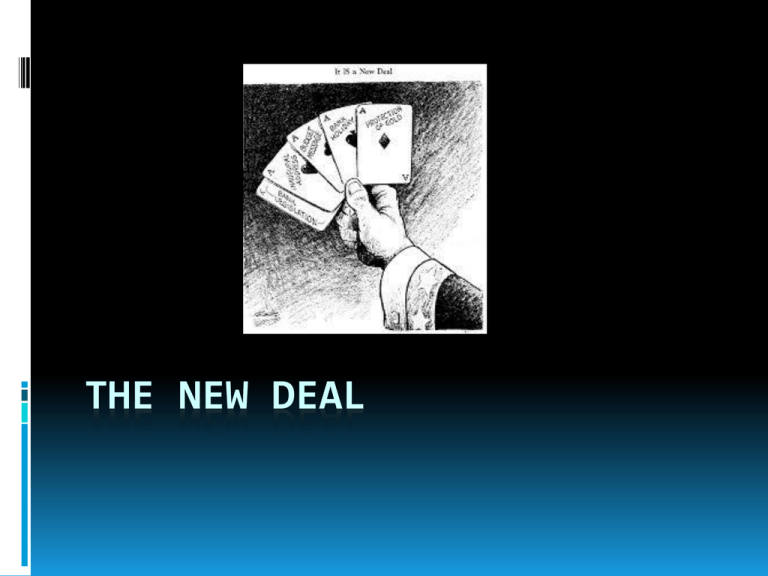
THE NEW DEAL Essential Question How does the role of government change with the New Deal? Is it a good or bad thing? Is the change a result of our transition from a traditional to a secular society? Focus Questions What role, if any, did the New Deal play in ending the Great Depression? How did FDR increase the power of the presidency? Is it a good thing or a bad thing? Why didn’t America see a new revolution? Might we yet in the future? FDR takes office Proposes a New Deal based on the idea the Federal Government should play an active role in promoting recovery and providing relief – unlike Hoover who believed in localism Country demands, “bold, persistent experimentation’ Puts together team of advisors known as the ‘Brain Trust’ two Republicans – Henry Wallace, Sec. of Ag; Harold Ickes, Sec. of Interior First woman – Francis Perkins and Sec. of Labor Relied on wife Eleanor to be his eyes and ears Bonus Army marches again – sends Eleanor to talk to them and show the government cares, but still doesn’t pay them http://www.youtube.com/watch?v=MX_v0zxM23Q The First 100 Days FDR and Congress pass 15 bills based on relief, recovery and reform immediate relief from depression, long-term economic recovery and reform to prevent future problems The Beginning Declared a bank holiday with the Emergency Banking Bill – gave broad powers to President FDR began giving ‘Fireside Chats’ – radio speeches to the American people http://www.history.com/topics/fireside-chats/videos#fdr-delivers-first-fireside-chat The Programs FDIC (Federal Deposit Insurance Corp): insured bank deposits up to $5,000 ($250,000 today) – reform SEC (Securities and Exchange Commission): regulate the stock market – reform AAA (Agricultural Adjustment Act): provided financial aid, paying farmers subsidies to not plant part of land and kill off excess livestock – attempt to combat overproduction and low prices - relief TVA (Tennessee Valley Authority): built a series of dams in the Tennessee River Valley to control floods and to generate electricity; replanted forests, built fertilizer plants – recovery critics called it socialist since it put gov’t in control of a business; also considered one of greatest achievements of New Deal CCC (Civilian Conservation Corps): provided jobs for more than 2 million young men; replanted forests, built trails, dug irrigation ditches, fought fires – recovery FERA (Federal Emergency Relief Act): granted federal funds to state and local agencies to help unemployed – relief CWA (Civil Works Administration): provided public-works jobs- relief HOLC (Home Owners Loan Corp): loaned money at low interest rates to homeowners who could not meet mortgage payments – relief FHA (Federal Housing Administration): insured bank loans used for building and repairing homes - relief NIRA (National Industrial Recovery Act): established the NRA (National Recovery Administration) – developed codes of fair competition to govern industries – established a minimum wage and minimum prices for goods - recovery PWA (Public Works Administration): built bridges, dams, power plants and government buildings -
